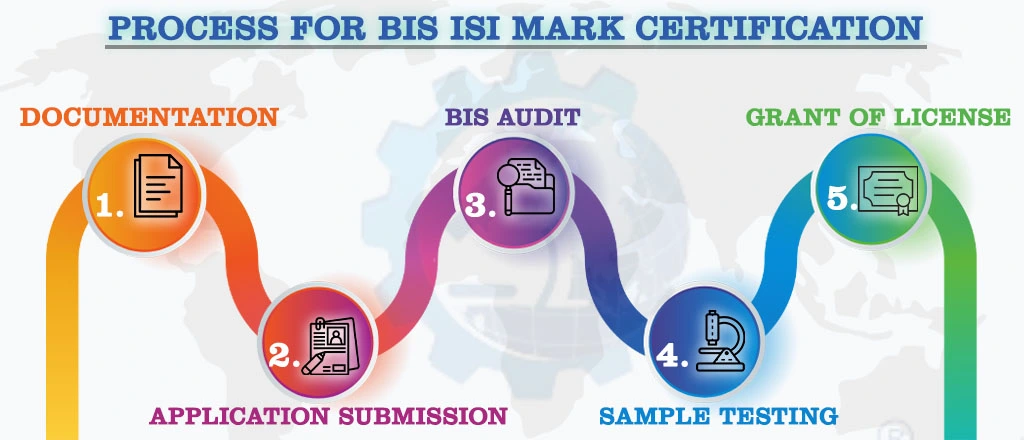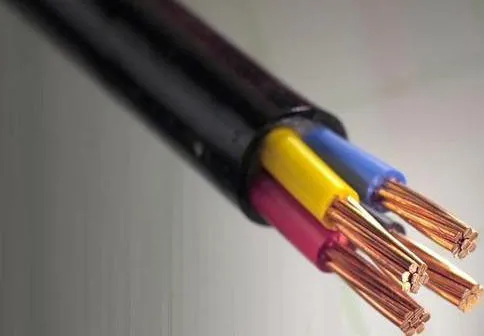BIS CERTIFICATION FOR PVC INSULATED CABLES
IS 694
In this competitive scenario, it isn't easy to survive in the market without a standard quality and certified product. BIS license may also be required to sell products in the Indian market.
To get BIS certification and produce a
standard quality product, the manufacturer must ensure that their
product must follow the specified Indian standard.
Let's take a closer look at IS 694: 2010 for PVC insulated cables for working voltage up to and including 1100 V.
IS 694: 2010 Cover PVC insulated cables for working voltage up to and including 1100 V. This standard specifies the general requirements for single and multicore cables/cords with rigid and flexible annealed bare/tinned copper and aluminium conductors, insulated and sheathed with polyvinyl chloride (PVC) for rated voltages up to and including 1100 V, used in electric power and lighting, as well as cables for outdoor and low-temperature use.
These cables are suitable for use on dc systems with rated voltages up to and including 1 500 V to earth. This standard also includes cables with FR (Flame-retardant) and FR-LSH (Flame-retardant low smoke and halogen) fire performance categories, with conductor temperatures not exceeding 70°C or 85°C. These cables must be qualified and tested in accordance with the requirements of the respective category.
This standard applies to the following categories of cable:
| Category Code | Environment Description |
|---|---|
| 01 | Cables for indoor installation |
| 02 | Cables for outdoor installations |
| FR | Flame retardant |
| FR-LSH | Flame retardant low smoke and halogen |
The conductors must be annealed, bare, or tinned high conductivity copper wires that meet IS 8130 Class 1 or Class 2 or Class 5 requirements. The conductor must be made of aluminium wires that meet IS 8130 standards. The insulation must be made of the polyvinyl chloride compound specified for each type of cable.
PVC cable is an electrical cable that uses PVC for wire insulation or cable jackets. Because of their excellent properties such as heat, chemical, and water resistance, durability, robustness, and versatility, PVC wires and cables are widely used.
Tests
The testing on the cables will be conducted for each category of the cable listed under the scope.
- Spark Test
- Flammability Test
- Oxygen Index Test
- Test for Halogen Acid Gas Evolution
- Test for Temperature Index
- Smoke Density Rating
- Flex Test
- Annealing Test (for Copper wires)Tensile Test (for Al wires)
- Wrapping test (for Al wires)
- Conductor Resistance
- Shrinkage Test
- Hot Deformation
- Heat Shock Test
- Insulation Resistance Test
- HV Test (at Room Temperature)
Various tests specified in the standard must be carried out according to the procedures specified in the specification in a properly equipped and staffed laboratory.
The cable must be packed and labelled according to the standard. The cable must be labelled with the information specified in the standard, and the cable may also be marked with the standard. The Manufacturer must obtain a BIS license from the Bureau of Indian Standards to use a standard mark (ISI Mark). The BIS grants a license based on a successful assessment of manufacturing infrastructure, quality control and testing capabilities, and production process during a visit to its manufacturing premises.

NOTE:
For Detailed Information about the Procedure for BIS ISI Certification
Visit :
ISI Mark Certification for Domestic ManufacturersISI Mark Certification for Foreign Manufacturers
Conclusion:
If a product falls under the scope of the BIS Conformity Assessment Scheme, All the manufacturers, importers, and foreign entities must obtain BIS ISI Certification. The Bureau may cancel the License if the product fails to meet certification requirements.
Aleph INDIA has been serving the industry as a single-window operator for all product regulatory compliance. We can assist importers or manufacturers in meeting all criteria for importing or selling a product in the Indian market.
International Audits & Participation
Testimonials
BIS REGISTRATION FOR ELECTRONIC & IT PRODUCT
In the era of globalization, world trade is growing rapidly and henceforth, Manufacturing and Import/Export businesses are also growing drastically...View More
BIS CERTIFICATE FOR FOREIGN MANUFACTURER
The Economy of India-the fastest developing economy on the globe with the capabilities that help it matches up with the biggest international...View More
PRODUCT CERTIFICATION SCHEME (ISI MARK) FOR DOMESTIC MANUFACTURERS
Anything a person buys from food to cars, clothes to electronics, branded to unnamed products there is always a question that wanders in one’s...View More
WIRELESS PLANNING AND COORDINATION (WPC)
WPC: Wireless means communication done from one point to another point without the wires and cables. Electromagnetic waves carry the ...View More
BUREAU OF ENERGY EFFICIENCY (BEE) CERTIFICATE
BEE CERTIFICATE: Energy is the future, and its conservation is the way of the bright future. Everyone claims the environment is important...View More
E-WASTE MANAGEMENT
E-waste is one of the world's fastest-growing trash streams. We currently manufacture almost 50 million tones of it each year...View More
Request a call back.
Would you like to speak to one of our Senior Technical advisers over the phone? Just submit your details and we’ll be in touch shortly. You can also email us if you would prefer.
BIS REGISTRATION FOR ELECTRONIC & IT PRODUCT
In the era of globalization, world trade is growing rapidly and henceforth, Manufacturing and Import/Export businesses are also growing drastically...View More
BIS CERTIFICATE FOR FOREIGN MANUFACTURER
The Economy of India-the fastest developing economy on the globe with the capabilities that help it matches up with the biggest international...View More
PRODUCT CERTIFICATION SCHEME (ISI MARK) FOR DOMESTIC MANUFACTURERS
Anything a person buys from food to cars, clothes to electronics, branded to unnamed products there is always a question that wanders in one’s...View More
WIRELESS PLANNING AND COORDINATION (WPC)
WPC: Wireless means communication done from one point to another point without the wires and cables. Electromagnetic waves carry the ...View More
BUREAU OF ENERGY EFFICIENCY (BEE) CERTIFICATE
BEE CERTIFICATE: Energy is the future, and its conservation is the way of the bright future. Everyone claims the environment is important...View More
E-WASTE MANAGEMENT
E-waste is one of the world's fastest-growing trash streams. We currently manufacture almost 50 million tones of it each year...View More
View All Services
Request a call back.
Would you like to speak to one of our Senior Technical advisers over the phone? Just submit your details and we’ll be in touch shortly. You can also email us if you would prefer.






























